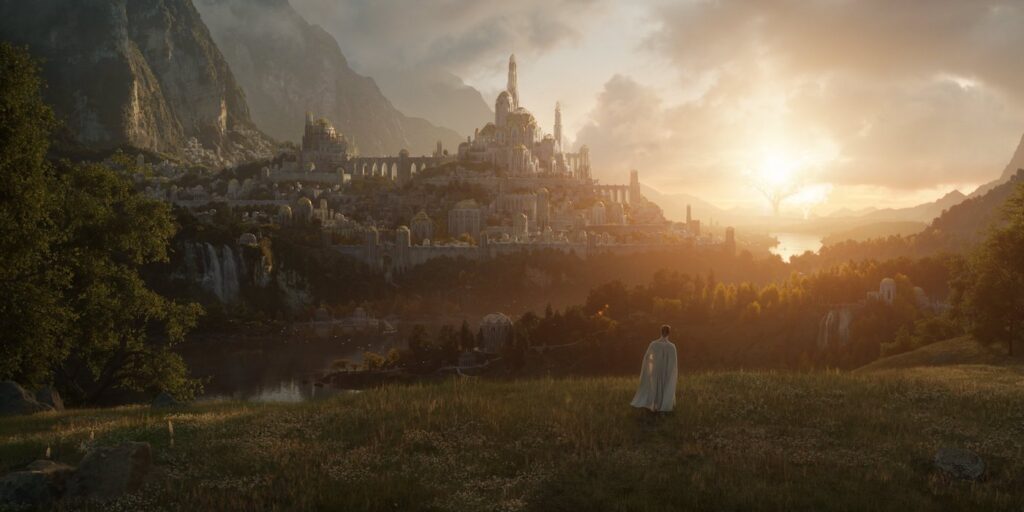
I propose to write about The Rings of Power. This is a controversial topic to address on the internet, based on the past few months, and perhaps perilous. There are dungeons online for the overbold. And overbold I fear I may be accounted, as a humble fan of all things Tolkien. This realm is wide and deep and high and is filled with many things.
This post will be in three parts, should you wish to skip over any of it. First, I will present my bonafides, my own history as a lover of Middle-Earth. Second, I will address the primary issue of “faithfulness” to the original writings. Third and last, I will give my actual review and thoughts on the first two episodes of Amazon’s new series, The Rings of Power.
What right do I have to speak on this topic?
Why am I even writing this part? Because in the majority of discussions I’ve seen on this show, anyone who disagrees with a certain loud opinion is accused of being a “new” Tolkien fan, someone who clearly doesn’t understand the lore. Feel free to skip this part if you don’t want to read about how much of a nerd I am.
I first read The Lord of the Rings in third grade. The librarian was very skeptical about this little boy checking out all three massive hardback adult books at once. My mom shook her head and assured her I’d return them all on time and fully read. She was right, of course. And since then, I’ve read through the entire trilogy over twenty-five times (I lost count eventually). I’ve read it out loud (all the way through) six times. I’ve also read everything else Tolkien ever wrote. The Silmarillion? Five or six times, and one time aloud. I own an entire shelf of Tolkien-related writings, and have read more than I own. This includes no less than four biographies of the man himself, and numerous critical essays and writings.
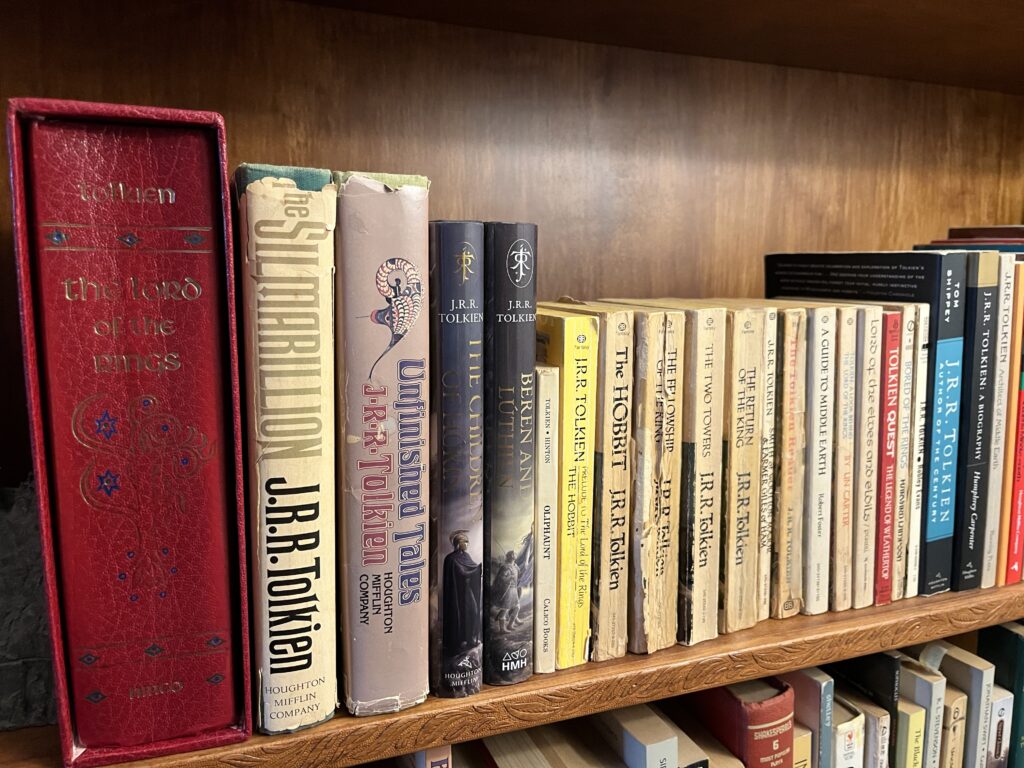
But why stop at books? Back in high school, I played a great deal of Iron Crown’s Middle-Earth Role-Playing (MERP). And when the Middle-Earth Collectible Card Game came out in the 90s, not only did I buy every card I could find, I even wrote a scenario for publication in one of the game books. At present time, I also enjoy playing War of the Ring and other modern Middle-Earth related games.
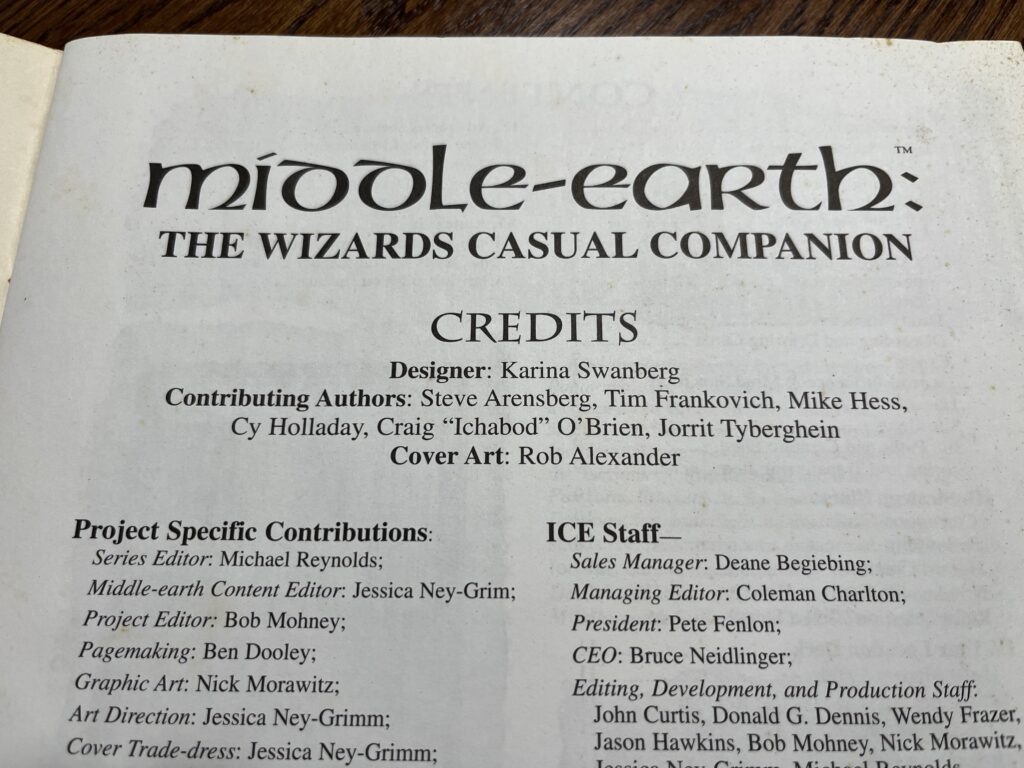
I could go on, but I’ll spare you some of the most nerdy things I’ve done. In my freshman speech class in college, I tried to do a dramatic recitation of The Bridge of Khazad-Dum scene… but anyway…
The issue of “faithfulness”
This is a big topic and I can’t possibly cover it all in one short essay here. A horde of internet posters, YouTubers, and so on, have been (very) loudly proclaiming that Peter Jackson held true to the “spirit” of JRR Tolkien, while Amazon is not. And they proclaimed this, of course, before the first episodes ever came out.
This is absolute nonsense.
First, let’s address the mumakil in the room. Some of the complains are racist. No question about it. Some people are bafflingly furious that some of the roles in this series are being played by non-white actors. “But, but Tolkien described this character as ‘fair’!” Tolkien also had some of his characters speak like people in the 1611 King James Bible. (“he will not slay thee in thy turn…”) “Fair” doesn’t mean what you think it means, Vizzini. I could write an entire essay on this topic alone, but for now, let’s just let it go.
Second, Peter Jackson was not faithful to the written word of The Lord of the Rings. Not in the slightest. I could list hundreds of departures. He started by replacing Glorfindel with Arwen and increasing Galadriel’s importance so that he could have two female characters on the movie posters. (If Fellowship of the Ring were being released today, some of these critics would be howling that he’d gone “woke.”) He had Saruman and Gandalf engage in a silly force duel. He absolutely butchered the character of Faramir, made the Ents look like absolute buffoons, turned Gimli into a comic relief sidekick, and turned Aragorn’s character arc completely opposite what it was in the books. If you listen to Jackson’s own commentary on the movies, you’ll hear a certain phrase repeated a disturbing number of times. When pointing out that something differed in the books, he (or Phillipa Boyens) would then say, “You can’t do that.” Sometimes, they would clarify with “you can’t do that in a movie,” but most of the time, they just said “you can’t do that.” They flat out said Tolkien was wrong to write the way he did, and they were making it better by changing it.
In some cases, they changed completely random things, like the number of orcs killed by Gimli and Legolas at Helm’s Deep. Why change a number by a single digit? It has to do with Hollywood writer credits. Apparently, you HAVE to change a certain number of things to get credit as a writer. It’s silly.
All that being said, I love those movies. I own the DVD, Blu-Ray, and digital versions of the extended editions. I have a stack of books connected to the movies. I enjoy them all greatly. But let us not hear any nonsense about how Jackson was faithful to the text.
Adaptations are always going to be different from a book. Recently, my family watched some episodes of The Chosen, an online series based on the life of Jesus Christ. Did they faithfully follow the exact text of the four Gospels? No, of course not. They added new characters and new events in the lives of existing characters. They told stories that fit (very loosely) within the text. That is the nature of an adaptation.
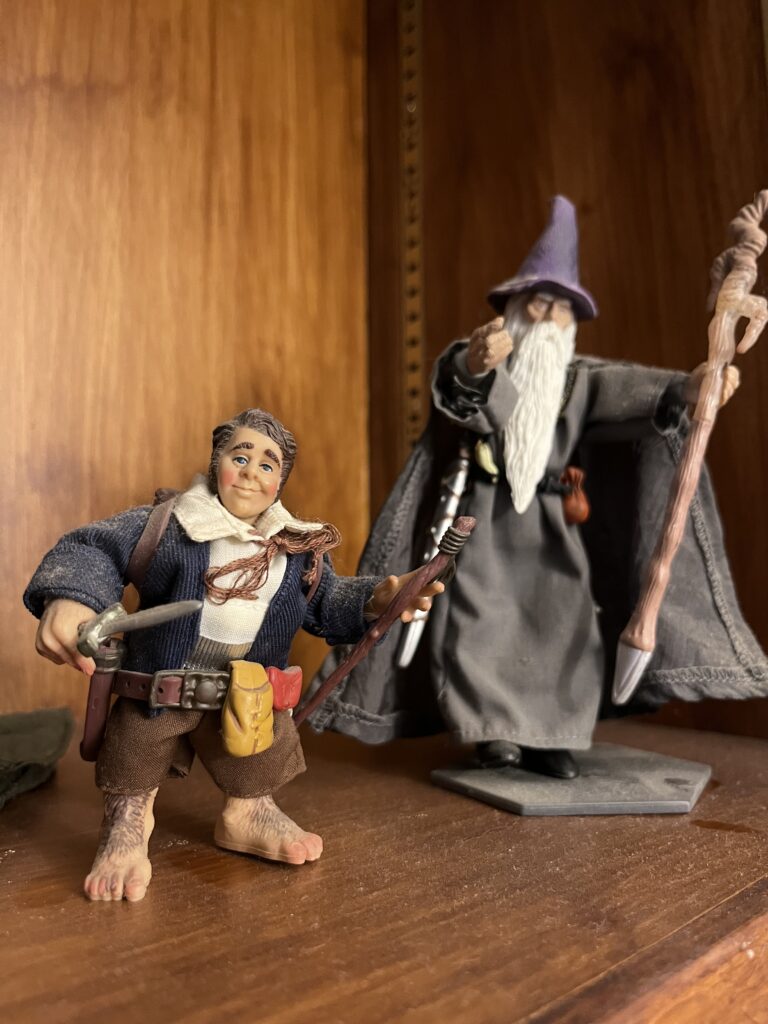
How then, are we to judge whether Jackson or the new show is true to the “spirit” of Tolkien? For most fans, it’s a nebulous thing. A “feeling.” As such, it’s wholly up to each individual to judge for themselves. Now, let us be clear: there is a limit to this, obviously. There is a moral layer to Tolkien’s work that should be reflected in any adaptations. I think some of the video games in recent history have gone far beyond the spirit of Tolkien. Shadow of Mordor, for example, is about a ranger possessed by the wraith of Celebrimbor going on a revenge mission. Everything about that seems contrary to Tolkien’s writings… but that’s my opinion, based on what I have read and believe about JRR Tolkien and his subcreated world.
So what did I think of the first two episodes of The Rings of Power?
Short answer: breathtaking, gorgeous, enthralling, and intriguing.
Now for the much longer answer. I’ll begin with positives, move on to negatives, and finish with my opinion on “faithfulness.”
Positives: The production values are off the charts, as should be expected for the most expensive TV show of all time. Everything looks and feels “real.” The glimpses of Valinor were inspiring. Khazad-dum is beautiful in a different way. I loved it.
Many mainstream critics complained about the pacing, saying the show was too slow (which is funny considering the source material). But I found it worked very well. Not once did I get bored, or wonder when a particular scene would end. For the number of characters and storylines being juggled, the pacing worked as it should.
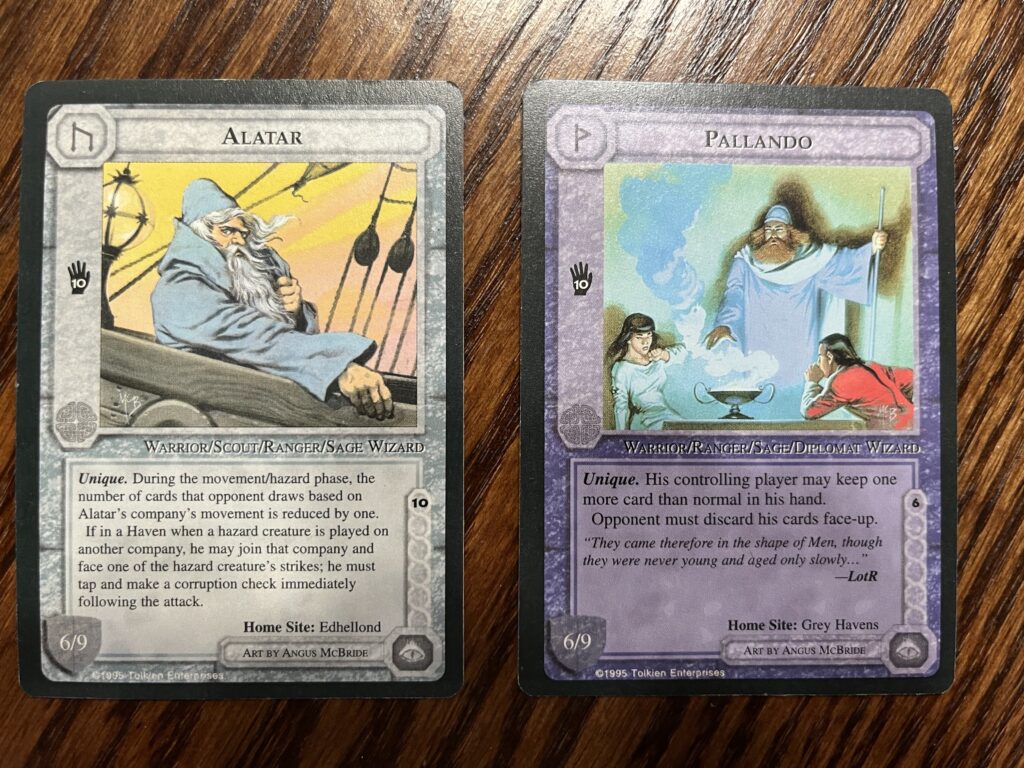
Those characters were all interesting. In many shows or movies, there are one or two characters that just annoy me and I hate when they’re on the screen. Not so with this one (so far). I’m intrigued to see where each of the disparate storylines leads and how they connect.
The music is outstanding. I’ve actually been listening to the soundtrack for a week or more, and it’s familiar enough to me now to enjoy when I catch some of the main themes.
I suppose it’s a positive to point out that absolutely NONE of the purported angry claims about what would be included came true. No sex or nudity. No modern-day politics.
Negatives: On occasion, a line of dialogue will sound too “modern.” But we had that in the Jackson films too. (And so far, we’ve had yet to see anything remotely eye-rolling as Legolas skateboarding a shield.) Nothing has made me quite cringe yet.
There is one absolutely huge problem with the lore. It’s made all the more problematic in that it’s a key plot point for the first episode. This, I suppose, takes us into the third section about faithfulness.
My biggest problem is the way in which the return to Valinor is treated, and really, it’s several problems. First, the idea that the King, Gil-galad, could give out return voyages as if they were cruise tickets is completely contrary to the books. Sailing back to Valinor is a choice that each elf makes for themselves. Second is the issue of Galadriel herself taking that voyage. Here is where it gets tricky. I understand that the creators of the show do not have the rights to what is written in The Silmarillion, and so they have to dance around certain topics (like how Finrod died). In the books, Galadriel is actually forbidden from returning to Valinor, because of her part in the rebellion of the elves (it’s a very long story). It isn’t until she faces the temptation of the One Ring and triumphs that she is redeemed and able to return. So I suppose her turning back at the literal entrance to the Undying Lands in this episode is kind of sort of taking the place of that ban, but it’s awkward and doesn’t really work.
EDIT: Having read another review, I now realize something else about this scene. By taking Galadriel to the very edge of Valinor, they set things up well for when Ar-Pharazon will try to get there, later in the series. I get that, but it was still awkward.
Aside from that, the show is remarkably faithful to Tolkien’s works, in my opinion, and in the typical ways of any adaptation. Timelines are condensed, some characters are left out or combined, etc. That’s normal. The moral element lines up with Tolkien’s work thus far, without any problems. But it is hard to completely judge the “spirit” of the whole thing at this point, as we don’t know exactly how the showrunners will take it to the end. If, for example, Celebrimbor dies and his wraith possesses one of the other characters to help out on a revenge mission, then I’ll have a problem with it. But based on what we’ve seen so far, I highly doubt anything that egregious is going to happen. At least, I hope not!
So I came in with the attitude of being cautiously hopeful. I ended the night with much more optimism. I hope it continues that way.
On an absolutely personal point: I’m thrilled, and it took me a while to nail down exactly why. When you finish reading a great story, there is a great sense of satisfaction. But also (usually later), there is a regret, a wish that you could read it all over again… for the first time. To experience that joy and excitement again. In a small way, that’s what is happening here. Is it a new book by JRR Tolkien? No, of course not. Is it high fantasy in the spirit of Tolkien and using his subcreated world? I would argue that it is. And so, I’m experiencing this story for the first time (though I do know where most of it ends up). That’s a delight and a thrill I never thought I’d experience, and I’m hopeful it continues.
Finally, for those who think Amazon is paying off everyone who says anything positive… BWAHAHAHAHAHAA!!!!! You clearly haven’t seen my bank account. But if you’re reading, Bezos, my 19-year-old truck won’t pass the state inspection, so I need just enough to fix it…
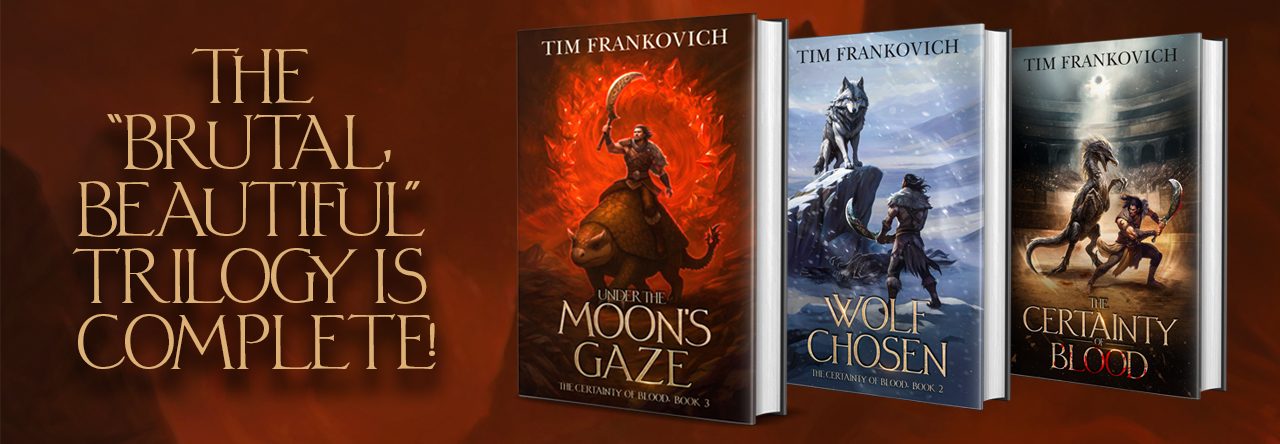
Leave a Reply